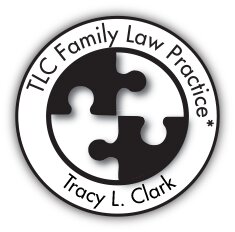Best Child Custody Lawyers in Prince George
Share your needs with us, get contacted by law firms.
Free. Takes 2 min.
Free Guide to Hiring a Family Lawyer
List of the best lawyers in Prince George, Canada
About Child Custody Law in Prince George, Canada
Child custody law in Prince George, like the rest of British Columbia, is governed by both federal and provincial legislation. Under the Family Law Act of British Columbia and the federal Divorce Act, decisions regarding child custody are made in the best interests of the child. These laws aim to ensure that children have as much contact with each parent as is consistent with their best interests. The approach in Prince George, and British Columbia as a whole, is child-centric and prioritizes the well-being and development of the child over parental preferences.
Why You May Need a Lawyer
Engaging a lawyer can be crucial in navigating the complexities of child custody matters. Common situations where legal advice is beneficial include:
- Disputes Over Custody Arrangements: When parents cannot agree on custody arrangements or schedules.
- Relocation: If one parent wishes to move with the child, potentially impacting the custody arrangement.
- Custody Modifications: When changes in circumstances necessitate revising existing agreements or orders.
- Allegations of Neglect or Abuse: A lawyer can provide necessary representation if there are concerns about a child's safety.
- Unmarried or Divorced Parents: Providing guidance on rights and responsibilities concerning custody.
Local Laws Overview
In Prince George, several key aspects of child custody law need your attention:
- Best Interests of the Child: This is the paramount consideration in any custody case. Courts evaluate a range of factors including the child’s emotional well-being, the stability of the environment, and each parent’s ability to care for the child.
- Types of Custody: Custody can be joint or sole. Joint custody involves shared decision-making, while sole custody gives one parent primary responsibility.
- Parenting Arrangements: These arrangements include both physical time spent with the child and decision-making responsibilities.
- Guardianship: In British Columbia, most parents are considered guardians and have rights like making major decisions regarding the child’s life unless a court order states otherwise.
- Child Support: While not directly a custody issue, child support is often determined alongside custody arrangements.
Frequently Asked Questions
What is the difference between custody and guardianship?
Custody involves the right to make important decisions about a child’s upbringing, while guardianship gives a person legal responsibility for a child. In British Columbia, guardianship typically includes custody rights.
Can a child decide which parent they want to live with?
The child’s views are considered, especially as they mature, but the court is not bound by the child's preferences. The primary concern is the best interests of the child.
How does the court determine the best interests of the child?
The court considers factors like the emotional ties between child and parents, each parent’s ability to care for the child, stability, and if applicable, the child’s own preferences.
Are custody agreements permanent?
No, custody agreements can be modified if there is a significant change in circumstances affecting the child's welfare.
What happens if one parent wants to relocate?
A parent wishing to relocate with the child must seek consent from the other parent or a court order, considering the impact on the existing custody arrangement.
Can grandparents apply for custody?
Yes, grandparents or any person with an interest in the custody of the child can apply for custody if it’s in the child’s best interests.
Do I need a lawyer to apply for custody?
While not mandatory, having a lawyer can be beneficial to navigate legal proceedings and ensure that your rights and interests, as well as those of the child, are fully represented.
How is child support related to custody?
Child support is typically determined alongside custody arrangements and it is the right of the child, not the custodial parent. The amount is calculated based on provincial guidelines.
What is the role of mediation in child custody disputes?
Mediation is encouraged as a way to resolve disputes amicably and to create parenting agreements out of court, which can be less adversarial and more collaborative.
How can I enforce a custody order?
If a custody order is not being followed, you can apply to the court for enforcement, which may involve fines or other measures to ensure compliance.
Additional Resources
When seeking assistance in child custody matters, consider reaching out to these resources:
- Legal Aid BC: Provides legal resources and services to those who cannot afford a lawyer.
- Family Justice Centres: Offers services such as mediation and information on family law issues.
- Government of British Columbia - Family Law in BC: An extensive online resource for family law matters.
- Prince George Family Justice Services: Local service offering support and information on family justice issues.
Next Steps
If you need legal assistance in a child custody matter:
- Consider consulting with a family lawyer who has experience in custody cases in Prince George.
- Gather any relevant documents and information that may assist in your case, such as records of communication, living arrangements, and financial information.
- Explore the possibility of mediation, as it can often lead to more amicable and sustainable resolutions.
- Visit local resources like Family Justice Centres for more guidance and support.
Lawzana helps you find the best lawyers and law firms in Prince George through a curated and pre-screened list of qualified legal professionals. Our platform offers rankings and detailed profiles of attorneys and law firms, allowing you to compare based on practice areas, including Child Custody, experience, and client feedback.
Each profile includes a description of the firm's areas of practice, client reviews, team members and partners, year of establishment, spoken languages, office locations, contact information, social media presence, and any published articles or resources. Most firms on our platform speak English and are experienced in both local and international legal matters.
Get a quote from top-rated law firms in Prince George, Canada — quickly, securely, and without unnecessary hassle.
Disclaimer:
The information provided on this page is for general informational purposes only and does not constitute legal advice. While we strive to ensure the accuracy and relevance of the content, legal information may change over time, and interpretations of the law can vary. You should always consult with a qualified legal professional for advice specific to your situation.
We disclaim all liability for actions taken or not taken based on the content of this page. If you believe any information is incorrect or outdated, please contact us, and we will review and update it where appropriate.









